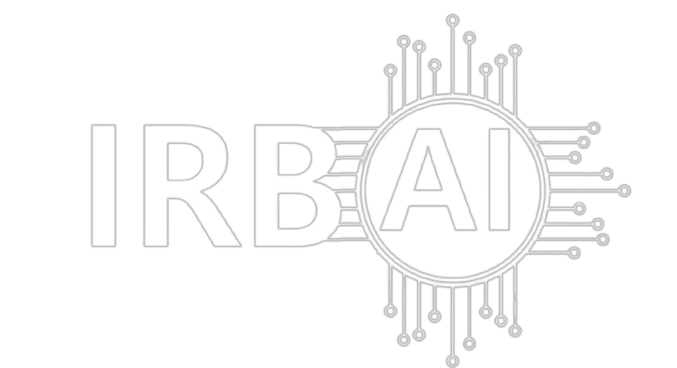Public safety
AI in Public Services
Artificial Intelligence (AI) is revolutionizing the public sector by enhancing efficiency, improving service delivery, and fostering innovation. Governments worldwide are integrating AI into various aspects of public service to better serve citizens and optimize operations.
As AI becomes more prevalent in public services, it’s essential for citizens to understand and adapt to these changes. Involving citizens in discussions about AI implementation fosters trust and allows for feedback, ensuring that AI applications align with public interests and ethical standards. Enhancing digital skills among the populace ensures that individuals can effectively interact with AI-driven services and understand their benefits and limitations. Governments should provide clear information about how AI is used in public services, addressing concerns about data privacy and decision-making processes.
public risks & Governmental responsibility
Risk Management
As AI systems become increasingly embedded in public services, it is essential to ensure they are developed and deployed in a safe, ethical, and accountable manner. IRBAI is committed to managing the potential risks of AI through a robust approach to risk mitigation, ensuring AI innovations serve the public good without compromising safety or security.
TRANSPORTATION
In the transportation sector, AI plays a critical role in autonomous vehicles, traffic management, and logistics optimization. However, its use must be monitored closely to prevent safety risks:
Autonomous Vehicles must comply with national and international safety standards to prevent accidents. Regular risk assessments should be conducted to ensure AI systems operate within defined safety parameters.
AI systems managing traffic signals and congestion control must be regularly audited for security vulnerabilities and ensure they do not cause public safety hazards.
EDUCATION
AI has the potential to transform the education system through personalized learning, but its use in educational tools also raises ethical concerns:
AI-powered learning platforms must be accessible, inclusive, and promote fairness in education, preventing discrimination based on gender, race, or other personal characteristics.
AI-based grading and student evaluations must be transparent and free from biases, ensuring equitable assessments for all students.
HEALTHCARE
AI is widely used in healthcare for improving diagnostics, personalizing treatment plans, and predicting disease outbreaks. However, there are risks related to patient data, health disparities, and accuracy:
AI systems handling health data must adhere to strict privacy regulations (e.g., GDPR, HIPAA) to ensure patient confidentiality and prevent data misuse.
AI in Diagnostics tools must be rigorously tested to ensure accuracy in medical diagnoses, as errors could lead to life-threatening consequences.
ENFORCEMENT
AI systems used in law enforcement, such as facial recognition or predictive policing, have the potential to enhance public safety, but they also raise concerns about bias, transparency, and human rights violations:
AI systems predicting criminal activity must be designed to eliminate biases and ensure fairness, preventing over-policing or racial profiling.
AI-driven surveillance systems must be used with strict oversight to avoid invasive monitoring of citizens and prevent abuse by governments or private entities.
SOCIAL SECURITY
AI plays a role in automating social security systems, welfare distribution, and public housing management. However, there are risks related to:
AI systems should ensure that welfare distribution and services are fairly allocated and accessible to all segments of society, preventing discrimination.
Data Privacy is extremely important, therefore handling sensitive citizen data requires stringent adherence to data protection laws to prevent misuse.
IRBAI conducts regular audits of AI systems used in government services to ensure fairness and equitable access
NATIONAL SECURITY
AI is transforming national defense systems, from autonomous drones to cybersecurity defense mechanisms. The risks in this domain are high:
Military AI systems must be protected from cyberattacks and tampering by malicious actors.
Autonomous Weapon Systems that operate without human oversight, such as autonomous lethal weapons, pose significant risks of human rights violations and war crimes.
IRBAI provides guidance and sets safety standards for the ethical development and deployment of military AI systems, ensuring compliance with international humanitarian law and human rights protections.
EMERGENCY RESPONSE
AI technologies are increasingly used in emergency response systems for natural disasters, pandemics, or other crises:
Predictive AI models used for crisis management must be accurate, and risks of false positives or ineffective responses need to be mitigated.
Public Health Surveillance systems predicting outbreaks can raise concerns around privacy and surveillance.
We advocate for data minimization and anonymization in predictive models.
ENVIRONMENT
AI technologies have the potential to revolutionize efforts toward environmental sustainability, offering innovative solutions for climate change, pollution control, and energy efficiency. However, AI’s widespread adoption must be handled with care to ensure that it does not create new environmental risks.
IRBAI promotes the use of AI technologies that align with global sustainability goals. We provide guidance on the responsible application of AI to ensure that it contributes to environmental protection, while encouraging international collaboration to tackle global environmental issues.
